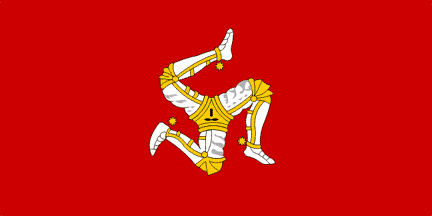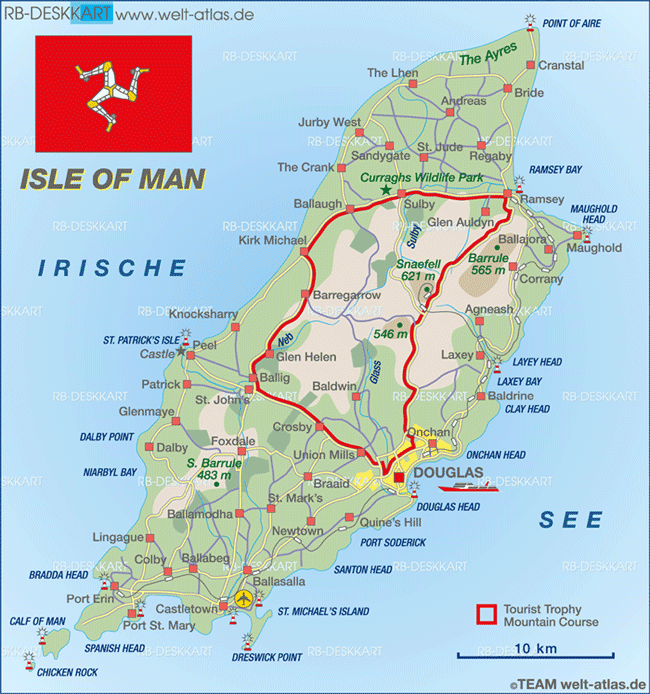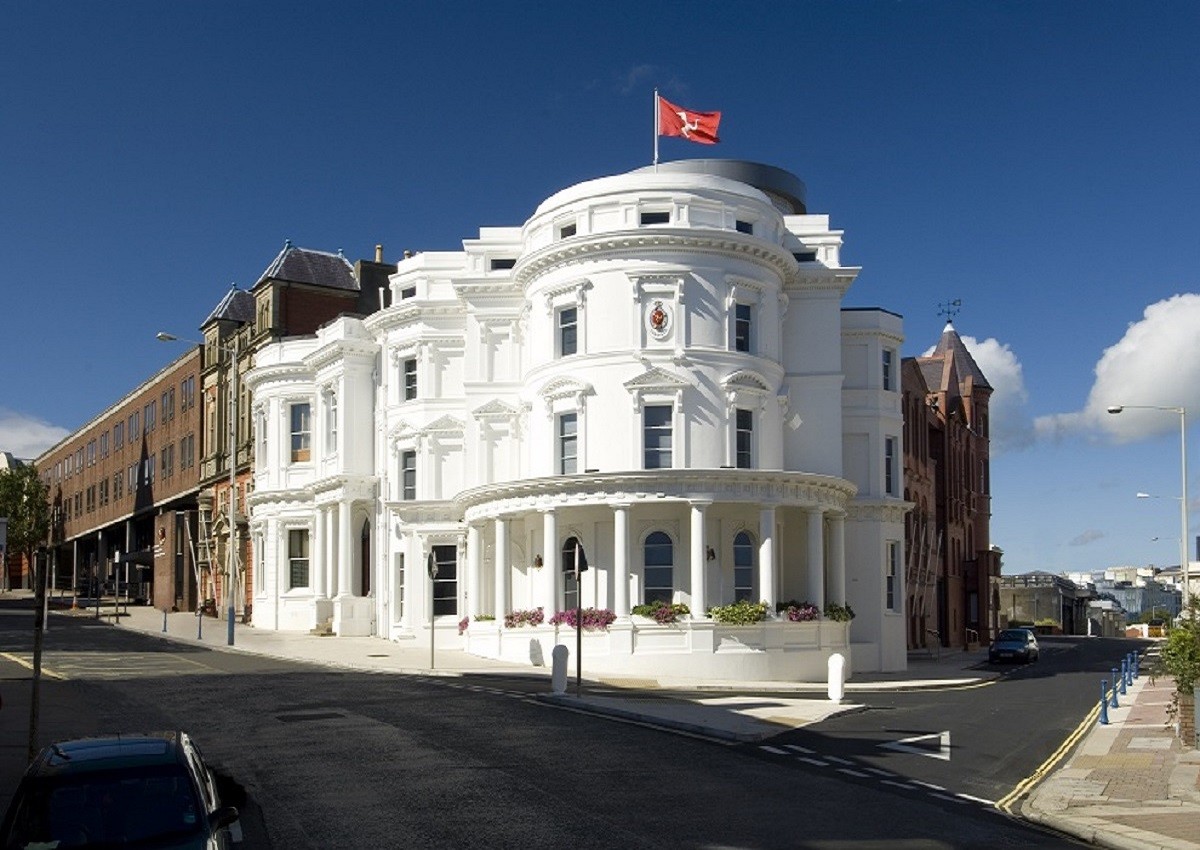
An Isle of Man Foundation is a legal entity benefiting a natural person or a class of persons and/or to complete a specific purpose. While a foundation is similar to a trust and a limited company with limited liability. A foundation can hold assets, engage in trade, raise money, sue and be sued in a court of law. In addition, a foundation can have a perpetual duration available for generations of beneficiaries.
The Isle of Man Foundations Act of 2011 (the Act) became effective in 2012 and governs the formation, activities, and dissolution of foundations in the Isle of Man.
Background
The Isle of Man (simply called “Mann”) is a British crown dependency, but self-governed. Located between England and Ireland on the Irish Sea. English is its official language along with Manx. Its government is a parliamentary constitutional democratic monarchy with England’s Queen Elizabeth II as the official “Lord of Mann”. In addition, there is a two house democratically elected legislature called the “Tynwald”. While having a population of less than 100,000 persons, the Isle of Man is famous for its International Business Center and offshore legal entities.
Benefits
Isle of Man Foundations enjoy the following benefits:
• Foreign Owner: A foundation can be owned by foreigners.
• Asset Protection: As a separate legal entity, the foundation owns all assets it holds further insulating the settlor (founder) and the beneficiaries from the assets.
• Estate Planning: An ideal estate planning tool as a foundation can provide for the settlor’s heirs and beneficiaries for unlimited generations without dealing with timely, costly probates.
• Perpetual: There are no time limits on the life of a foundation which is perpetual.
• No Taxation: Completely tax free income and profits
• Limited Liability: Foundations enjoy the same limited liability rights as a limited liability company (LLC).
• Trading: Unlike most countries, an Isle of Man foundation can engage in trading and commercial activities.
• Privacy: The names of the founder and beneficiaries are never included in the public records.
• English: As a British crown dependency, English is an official language.

Isle of Man Foundation Name
The Registrar issues guidelines for name selection called the “Guidance Notes: Choosing Your Business or Company Name”. Like every other country, the name of the foundation must not be the same, similar, or resemble other legal entities.
The foundation’s name must end with the word “foundation”.
Registration
The foundation’s registered agent files an application form with a copy of the Foundation Instrument and pays the registration fee. When the foundation is approved, the Registrar makes the following entries into the public records:
• Foundation’s name and address;
• Foundation’s purpose and objects;
• Council members’ names and addresses;
• Registered agent’s name and address; and
• Registration number.
Then the Registrar issues a Certificate of Establishment which verifies the foundation’s legal status. The Registrar also maintains a Registrar which includes the foundation’s instrument which are available for public inspection.
Foundation Structure
Every foundation must have the following:
• Founder – The person who creates the foundation;
• Beneficiaries – While the names of those who receive foundation income and assets do not need to be identified in the instrument, they must be named in the rules. Beneficiaries do not have an automatic right to foundation income or its assets unless the instrument and/or rules provide such entitlement, If a beneficiary is not provided with such benefits, he or she may petition the High Court to order the foundation to provide such benefits,
• Registered Agent – Appointed to act as the foundation’s agent. Must be licensed issued under the Financial Services Act of 2008. The only person who can apply with the Registrar of Foundations to form a foundation. It is mandatory for every foundation to appoint a registered agent.
• Foundation Instrument – The document containing the constitution and rules of the foundation. In some countries this is called a “charter”. This is similar to a company’s Memorandum of Association. The names of the foundation, the registered agent, and council members are included. The foundation’s purpose and objects must be declared which are not immoral, illegal or contrary to public policy. Upon filing, it become a public document.
• The Rules – Similar to a company’s Articles of Association, the rules govern how the foundation is run along with the duties of the council and how they are appointed, remunerated, can resign or be removed. The names of the beneficiaries must be included in the rules unless it is a specific purpose foundation where assets will be held in accordance to the rules. If a foundation has an initial contribution of assets, the details must be included in the rules. The rules determines how and when further contributions of assets may be made to the foundation.
• Council – The council must have a minimum of one member. Council members must be at least 18 years old, mentally stable, and otherwise not disqualified from being a member of either the foundation’s council or as a director for a company. The founder and the registered agent can be council members.
Council members are responsible for running the foundation according to the foundation’s instrument, rules and in accordance with the Act. They have a fiduciary duty to act in an honest, good faith manner and always act for the best interests of the foundation. They must also exercise diligence, care, and the skills of a reasonable prudent individual under similar situations.
• Enforcer – This is an optional position unless the foundation is established to carry out specific non-charitable purposes like a purpose trust. The enforcer’s role is to ensure that the council carries out its duties under the foundation’s instrument and rules. Upon appointing an enforcer, the rules must specify the name and address of the enforcer. In addition, the rules must include rules for appointing, remuneration, removing, retirement, and replacement of the enforcer.
Enforcers cannot authorize actions inconsistent with the instrument, rules, or the Act.
Only the founder and the registered agent can be both an enforcer and a member of the council.

Trading
Unlike most foundations in other countries, an Isle of Man foundation may engage in commerce and trade. However, banking and insurance activities requires a government license. In addition, while investment activities of the foundation’s assets are allowed, other types of investment activities may require a license. A foundation is prohibited from soliciting funds from the public nor offer membership or shares to the public without a license.
Taxes
Similar to an Isle of Man Limited Liability Company (LLC), a foundation will not pay taxes on income generated outside of the Isle of Man. If profits are earned within the Isle of Man, the corporate tax rate is 10%.
Accounting
There is no requirement for audits and filing financial statements with the government. However, every foundation must maintain financial records reflecting its financial status.
Accounting records can be kept outside of the Isle of Man as long as every six months they are sent to the official registered office.
Failing to keep accounts or to make them available for government or the founder’s or beneficiaries inspection is a criminal offense punishable by a fine or imprisonment. The Assessor of Income Tax may request for an inspection of all financial records at any time.
Public Records
All public records are available to the public. However, the only document for a foundation is its Instrument which does not name the founder or the beneficiaries. Only the names of the registered agent and the council members are included in the public records.
Time for Registration
Registration can take one business day.
Shelf Foundation
Due to the uniqueness of every foundation, shelf foundations are not typically available for purchase.
Conclusion
Isle of Man Foundations enjoy the following benefits: 100% foreign ownership, asset protection, estate planning, privacy for the founder and beneficiaries, perpetual lifespan, limited liability, trading activities, and English is the official language.


